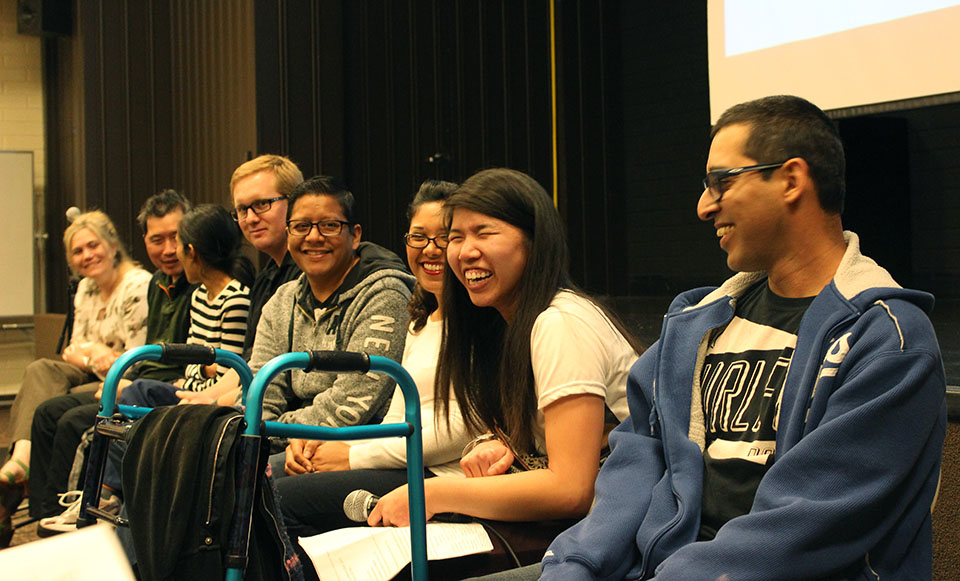“What is your name? Where do you live? Who is the current president?” The world spins and words slur as your name slowly trickles off your tongue. The policeman stands before you waiting for the remaining answers, but you do not have them to offer. You were still attempting to process and produce the answer for one after he was done speaking.
Support and therapy
This is the reality for survivors of brain injury. Whether by a surprise aneurysm or a traumatic car accident, the brain is an organ, like any other, that can be damaged irreparably. However, when the brain is injured — as the saying goes — every other part of the body suffers.
B.R.A.I.N. is an organization that offers support and therapy to brain injury survivors, and all panelists at the Survivors Speak Symposium hosted at Biola were recruited to speak by senior communication sciences and disorders major Sarah Pfaff through weekly meetings.
“It was my idea, but it was definitely a team collaborative effort. What I brought to the table was I volunteered B.R.A.I.N. I have connections with all these fellows,” Pfaff said. “Being a part of B.R.A.I.N. has really shown me that is this what I want to do. These are the people I love. I’m passionate about it because these people need help, and not a lot of people have the patience to give them and I want to be someone that can provide that for them.”
Hope and redemption
Some members of the panel were fresher to their injuries than others, though there was an undeniable hope and redemption through each of their stories. The first speaker, Melissa Yu, had suffered a freak brain rupture, which led to two strokes and a brain aneurysm. For Yu, though her speech may be slow, joy nears as her wedding to fianceé Alfonzo, who joined her on the panel, quickly approaches.
Other panelists included former competitive racecar driver Phil Harmatiuk, who crashed during a race and suffered a skull fracture and damage to his brainstem — resulting in a coma for approximately a month. Two Biola alumni also sat on the panel: Albert Chan and Jenni Gerdes.
Gerdes graduated from Biola and is now a kindergarten teacher. She was in three separate but serious car accidents that left her with severe concussions, the worst of which left her without a voice for days. Chan graduated from Talbot seminary, and while teaching in the classroom, he noticed students quickly begin taking out their cell phones to call 911 after noticing warning signs of an oncoming stroke. He now jokes about considering taking points off their grades for having their phones out in class, had he not passed out. Coincidentally, it was also Oct. 29, National Stroke Awareness day.
“I didn’t even know what a stroke was before I had one,” Chan said. “Just because you have a physical disability doesn’t mean you have a corresponding mental disability. I think a lot of people think if you have one you have to have the other. They’re not totally connected.”
In regard to the purpose behind volunteering at B.R.A.I.N. and becoming such close friends with the panelists she invited, Pfaff stresses the importance of looking beyond the way someone may speak or walk. She pushes attendees and visitors to have patience with survivors and really understand the person trapped within a body that does not obey them anymore.
“Look at someone not at face value, but deeper. Look at what’s really going on inside. These people are really a testament to that. They are so much more than their disability or limitation shows,” Pfaff said. “They’re in a very vulnerable place, after losing a lot of what they have… There is an underlying theme that we are a community, and that kind of suggests the body of Christ in a way.”







